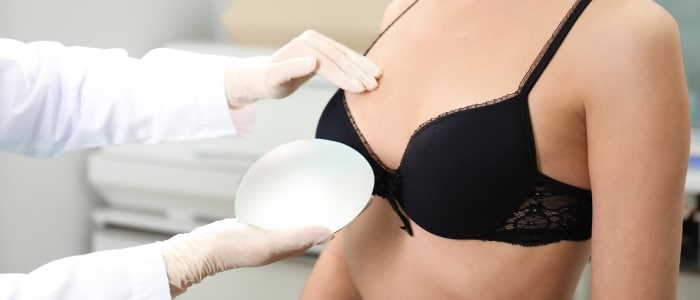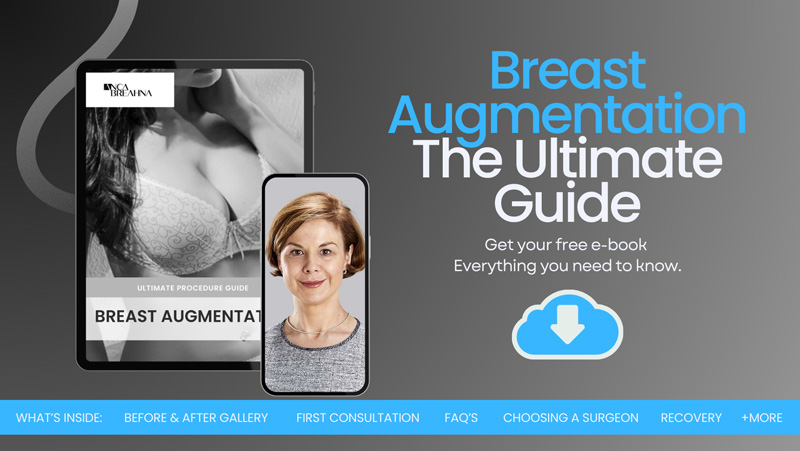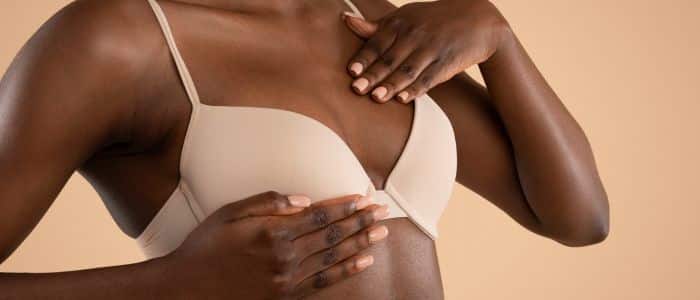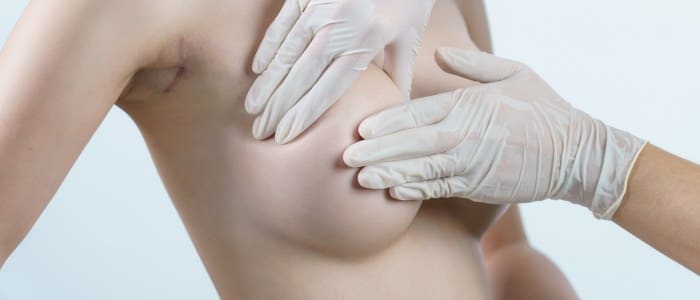
- About Breast Implant Illness - BII
- Take our Plastic Surgery Quiz to find out if you'd be a good candidate for cosmetic surgery.
- Breast Implants
- Download the Breast Augmentation Guide
- What is Breast Implant Illness?
- Symptoms of Breast Implant Illness
- Potential Causes of Breast Implant Illness
- Treatment Options for Breast Implant Illness
- Breast Augmentation Before and After Photos
- Future Directions and Research
- FAQs about Breast Implant Illness
- Further Reading about Breast Implant Surgery with Consultant Plastic Surgeon Anca Breahna
About Breast Implant Illness – BII
Despite not being officially recognised, Breast Implant Illness (BII) is a condition that refers to a range of symptoms some women attribute to their breast implants. Knowing more about breast implant illness is important for those considering augmentation or experiencing unexplained health issues post-surgery.
In this blog, Chester Consultant Plastic Surgeon Anca Breahna will discuss what BII entails, including its symptoms, potential causes, and the available treatment options for breast implant illness. Exploring these aspects could offer insights into navigating this complex condition, fostering a better understanding of the measures you can take to manage or alleviate symptoms related to breast implants.
Take our Plastic Surgery Quiz to find out if you’d be a good candidate for cosmetic surgery.
Breast Implants
Every year, many women choose to have breast implants all over the world. At the same time, some of them choose to have breast implants removed.
Understanding the wide variety of breast implants available is essential for those considering this procedure. Here are more details about the types and characteristics of breast implants:
- Saline vs. Silicone: Silicone implants mimic natural breast tissue more closely than saline.
- Gummy Bear Implants: Retain shape even if the shell breaks, due to their form-stable nature.
- Round Implants: Create a fuller appearance, with higher profiles offering more projection.
- Smooth vs. Textured: Smooth implants feel softer, while textured implants are designed to stay in place by developing scar tissue.
- Low Profile Implants: Offer the least projection with the broadest base, suited for a natural look.
- Moderate Profile Implants: Provide more projection than low profile, ideal for medium frames.
- High Profile Implants: Have significant projection and a rounder shape, enhancing upper pole fullness.
- Ultra-High & Very High-Profile Implants: Offer the highest projection and fullness.
It’s important to mention that breast implant illness (BII) could occur with any type of implant.
Download the Breast Augmentation Guide

What is Breast Implant Illness?
Breast Implant Illness (BII) describes a variety of symptoms believed to be linked to breast implants, affecting women regardless of the implant type – including silicone gel-filled, saline-filled, smooth surface, textured surface, round, or teardrop-shaped. The condition is differentiated from breast implant-associated anaplastic large cell lymphoma (BIA-ALCL), other lymphomas, and breast implant-associated squamous cell carcinoma (BIA-SCC), focusing primarily on autoimmune or inflammatory reactions.
Key Points on BII:
- Potential Causes: The exact origins of BII remain uncertain, but theories suggest it may stem from an autoimmune or inflammatory response to the implants, possibly triggered by the silicone material. Some patients might have a predisposition due to underlying conditions affecting the immune system or hormone production.
- Symptoms and Diagnosis: Symptoms are varied, with some patients meeting the criteria for Chronic Fatigue Syndrome/ Myalgic Encephalomyelitis (CFS/ME) and fibromyalgia. Diagnosis is challenging due to the lack of specific tests, requiring thorough assessment to exclude other conditions.
- Research Findings:
- Studies indicate symptom improvement post-implant removal.
- Elevated levels of certain biomarkers (e.g., CRP, antinuclear antibodies) have been observed.
- MRI is preferred for detecting implant issues, with some patients showing altered autoantibody levels.
- Increased risk of autoimmune/rheumatic disorders noted in individuals with implants.
Symptoms of Breast Implant Illness
Symptoms of Breast Implant Illness (BII) manifest in a variety of ways, impacting women differently. These symptoms can emerge at any time post-implant surgery, ranging from immediately after the procedure to several years later. The complexity of BII symptoms often mirrors those associated with autoimmune and connective tissue disorders, making diagnosis and treatment a challenge. To aid in understanding, symptoms are categorised as follows:
Musculoskeletal Issues:
- Joint pain
- Muscle pain and weakness
Cognitive Issues:
- Anxiety and depression
- Brain fog
- Fatigue
- Memory loss
- Trouble concentrating
Systemic Issues:
- Autoimmune condition symptoms or diagnosis
- Chronic pain
- Dry eyes or low vision
- Hair loss
- Skin problems (e.g., rashes)
Additionally, some patients may experience symptoms that are specifically indicative of silicone toxicity, such as rashes, dry mouth, dry eyes, muscle weakness, and general fatigue. It’s important for women experiencing these symptoms to seek medical evaluation to explore the possibility of BII and discuss potential treatment options.
Potential Causes of Breast Implant Illness
Exploring the potential causes of Breast Implant Illness (BII) reveals a complex interplay of factors that may contribute to the onset of symptoms. These factors include:
Autoimmune or Inflammatory Response:
- Silicone Components: Some patients may experience an autoimmune or inflammatory response to silicone or other materials present in breast implants. This reaction can trigger symptoms similar to those seen in autoimmune disorders.
- Biofilm Infection: Bacteria can grow on the surface of an implant, leading to a biofilm infection. This type of infection can cause inflammation and contribute to the symptoms associated with BII.
Surgical Reaction:
- The process of inserting breast implants involves surgery, which itself can trigger an inflammatory response in the body. This reaction to the surgery and the physical presence of the implant may play a role in the development of BII symptoms.
Pre-existing Conditions:
- Patients with a history of certain conditions, such as allergies, migraines, chronic fatigue syndrome, or fibromyalgia, may have a higher susceptibility to developing BII. This suggests a possible link between BII and the body’s overall propensity for inflammatory or autoimmune reactions.
Understanding these potential causes is essential for patients considering breast implants and those experiencing unexplained symptoms post-implantation. Awareness and further research into these factors could lead to improved diagnosis and treatment options for BII.
Treatment Options for Breast Implant Illness
Any persistent symptoms that occur in patients with breast implants should be investigated for other medical conditions prior to consideration of removal of breast implants. If no other cause is found research has shown that they are likely to experience at least partial symptom improvement after implant removal. This improvement can occur with no capsulectomy or only partial removal of capsule. This is a procedure less invasive and caries lower risks than en-bloc capsulectomy which should be reserved to certain cases such as capsular malignancy.
Post-Surgical Care Recommendations:
- Diet and Lifestyle: Following implant removal, adopting a healthy diet, engaging in regular exercise, and managing stress levels can contribute to overall well-being and aid in recovery.
- Reconstruction Options: After implant removal, you may choose to go flat, opt for autologous reconstruction using your own tissue, or explore other reconstruction methods. Discussing these options with your plastic surgeon is essential to make informed decisions about post-surgical aesthetics.
Considerations and Outcomes:
- Symptom Improvement: Many patients report significant improvement in BII symptoms following implant removal, with some experiencing relief almost immediately. However, it’s important to note that removing the implants may not resolve symptoms for everyone.
- Research and Decision Making: Ongoing research aims to better understand BII and the impact of implant removal on symptoms. Decisions regarding implant removal should be made carefully, considering both potential health benefits and the implications for appearance and quality of life.
Breast Augmentation Before and After Photos
Future Directions and Research
In the quest to understand and effectively treat Breast Implant Illness (BII), significant strides are being made through organised research efforts and clinical studies. Key among these initiatives is the establishment of a BII task force by The Aesthetic Society, aimed at conducting long-term research. This task force is tracking new breast implant patients over a period exceeding 10 years, gathering valuable data on the incidence and progression of BII symptoms.
Research Initiatives:
- Prospective Study: A single-centre study is underway to correlate breast augmentation with symptomatology and assess symptom resolution following en-bloc resection.
- Long-term Patient Follow-up: The Aesthetic Society’s BII task force is monitoring patients for over a decade to collect comprehensive data on BII.
Given the absence of definitive diagnostic tests for BII, healthcare providers currently rely on excluding other conditions to diagnose BII. This highlights the urgent need for:
- Development of Diagnostic Tools: Establishing specific tests for BII would greatly enhance the accuracy of diagnosis, enabling targeted treatment approaches.
- Evidence-based Treatment: A large, prospective, outcomes-based study is crucial for developing an evidence-based treatment protocol for BII, considering that symptoms vary widely among individuals and may not always resolve post-implant removal.
This ongoing research is key in paving the way for a deeper understanding of BII, potentially leading to the establishment of standardised diagnostic criteria and effective treatment modalities.
FAQs about Breast Implant Illness
Can breast implant illness occur with both silicone and saline implants?
Yes, Breast Implant Illness can occur with both silicone and saline implants. The symptoms associated with BII are believed to be related to the body’s response to the implants themselves, rather than the specific type of filler material. Patients with either type of implant have reported experiencing symptoms of BII.
How long after getting breast implants can symptoms of BII appear?
Symptoms of Breast Implant Illness can appear at any time after the implant surgery. For some patients, symptoms may begin to manifest shortly after surgery, while for others, symptoms might not appear for several years. The onset of symptoms is highly individual and can vary greatly from person to person.
Are there any tests that can diagnose breast implant illness?
Currently, there is no single test that can diagnose Breast Implant Illness. Diagnosis is primarily based on the patient’s symptoms and medical history. Healthcare providers may conduct a variety of tests to rule out other conditions and to assess the overall health of the patient, but diagnosing BII often involves a process of elimination.
If I have symptoms of BII, is explant surgery always necessary?
Explant surgery, which involves the removal of breast implants, is considered a potential treatment for BII, but whether it is necessary depends on your symptoms and preferences. Many patients report symptom improvement after explantation, but it’s important to discuss all available treatment options with a plastic surgeon to make an informed decision that’s right for you.
Can Breast Implant Illness be prevented?
Currently, there is no guaranteed way to prevent Breast Implant Illness. Patients considering breast implant surgery should discuss the potential risks and benefits with the plastic surgeon. Choosing an experienced plastic surgeon and staying informed about the latest research and guidelines can also help manage the risks associated with breast implants.
Medical References
- Breast implant illness: a topic in review (NCBI) – https://www.ncbi.nlm.nih.gov/pmc/articles/PMC7882356/
- Breast Implant Illness: A Cohort Study (NCBI) – https://www.ncbi.nlm.nih.gov/pmc/articles/PMC10208020/
- What is Breast Implant Illness (BII)? – Symptoms & Treatment (Breast Cancer Org) – https://www.breastcancer.org/treatment/surgery/breast-reconstruction/types/implant-reconstruction/illness/breast-implant-illness
- Breast Implant Illness (BII): What It Is, Symptoms & Treatment (Cleveland Clinic) – https://my.clevelandclinic.org/health/diseases/23366-breast-implant-illness
- Breast implant illness: Is it real? (Medical News Today) – https://www.medicalnewstoday.com/articles/326158
Further Reading about Breast Implant Surgery with Consultant Plastic Surgeon Anca Breahna
- Read more about Waterfall Breast Deformity after Breast Implant Surgery
- Read more about Breast Augmentation with Mentor Breast Implants
- Read more about How to Choose the Best Breast Implant Profile and Projection
- Read more about How to Fix Saggy Breasts – Breast Uplift, Breast Implants or Both
- Read more about Breast Implants under the Muscle – Breast Implant Placement
- Read more about Answering Common Questions About BIA-ALCL
- Read more about When Can I Exercise after Breast Implant Removal Surgery?
- Read more about How Safe Are Breast Implants? A Clear, Honest Guide From A Consultant Plastic Surgeon





 Ms Anca Breahna, PhD, MSc, FEBOPRAS, FRCS (Plast) is a highly regarded Consultant Plastic Surgeon specialising in the field of Aesthetic and Reconstructive Plastic Surgery. Anca performs a range of
Ms Anca Breahna, PhD, MSc, FEBOPRAS, FRCS (Plast) is a highly regarded Consultant Plastic Surgeon specialising in the field of Aesthetic and Reconstructive Plastic Surgery. Anca performs a range of 